Math\begin{equation}\begin{split}(xy1)^2\dfrac{dy}{dx}=1\end{split}\end{equation}\tag*{}/math To solve this differential equation, the best trickY(0) = 22 dx A)y=1 23ex2 B) y = 2 22ex2 C) y = 2 24ex2 D) y=2 24ex2Exercises Solve each of the differential equations in Exercises 114 4xy dx (x2 1) dy 0 2 (xy 2x y 2) dx (x2 2x) dy = 0 3 2r (s2 1) dr (r 1) ds 0 4 csc y dx sec x dy = 0 (5 tan 0 dr 2r d0 = 0 6 (e" 1)cos u du e" (sin u 1) dv = 0 (x4) (y21) dx y (x2 3x 2) dy = 0 0 8 (x y) dx x dy (2xy 3y2) dx (2xy

Dy Dx 4xy X 1 1 X 1 Solve It Brainly In
(x^2+6y^2)dx-4xy dy=0 when x=1 y=1
(x^2+6y^2)dx-4xy dy=0 when x=1 y=1-Rewrite 2xy dxx2 dy−1 dy = 0 2 x y d x x 2 d y − 1 d y = 0 Change the sides $$2 xy \ dx x^2 \ dy = 1 \ See full answer below Solve the differential equation dy/dx = ((x^2 y^2 3x 3y 2xy 1)/(x^2 y^2 – 3x – 3y 2xy 2)) asked in Differential equations by Nakul01 (369k points) differential equations;



How To Solve Dy Dx 4x Y 7 2x Y 1 Quora
Simple and best practice solution for (1x^4)dyx(14y^2)dx=0 equation Check how easy it is, and learn it for the future Our solution is simple, and easy to understand, so don`t hesitate to use it as a solution of your homework If it's not what You are looking for type in the equation solver your own equation and let us solve itFind dy/dx y^2=(x1)/(x1) Differentiate both sides of the equation Differentiate the left side of the equation Tap for more steps Differentiate using the chain rule, which states that is where and Tap for more steps To apply the Chain Rule, set as But if I expand the bracket $(xy)^2$ before integrating I will get $$\varnothing_1=\int Mdx=\int (xy)^2dx=\int (x^22xyy^2)dx=\frac{x^3}{3}xy^2x^2y$$ Wich will lead to the solution $$\varnothing=\varnothing_1\varnothing_2=\frac{x^3}{3}xy^2x^2yy=Constant$$ What is the wrong step ?
Calculus Find dy/dx y=1/ (x^2) y = 1 x2 y = 1 x 2 Differentiate both sides of the equation d dx (y) = d dx ( 1 x2) d d x ( y) = d d x ( 1 x 2) The derivative of y y with respect to x x is y' y ′ y' y ′ Differentiate the right side of the equation Tap for more steps Ex 96, 14For each of the differential equations given in Exercises 13 to 15 , find a particular solution satisfy the given condition9 = 0 a dy/dx = 2x4y10/244x 1 a dy/dx = 2x4y10/2y4x 1 b dy/dx = 2x 4y10/2y 4x 1 c dy/dx = 2x4y10/2y4x 1 e dy/dx = 2x4y10/2y4x 1
You can separate it out as x d x y d y = x 2 − 1 y 2 1 now put y 2 1 = u and then continue to get a very simple integrable function 21(xy^2x)dx(yx^2y)dy=0 2 1 ( x y 2 x ) d x ( y − x 2 y ) d y4dy^ {2}x^ {2}\left (3d\right)x4dy=0 4 d y 2 x 2 ( − 3 d) x 4 d y = 0 This equation is in standard form ax^ {2}bxc=0 Substitute 4y^ {2}d for a, 3d for b, and 4dy for c in the quadratic formula, \frac {b±\sqrt {b^ {2}4ac}} {2a} This equation is in standard form a x 2 b x c = 0Learn how to solve differential equations problems step by step online Solve the differential equation 4x*y*dx(x^21)dy=0 Grouping the terms of the differential equation Group the terms of the differential equation Move the terms of the y variable to the left side, and the terms of the x variable to the right side Simplify the expression \\frac{1}{y}dy Integrate both sides of the




2 Solve The Following Differential Equations A Gauthmath



Cdn1 Byjus Com Wp Content Uploads 01 Rs Aggarwal Solutions Class 12 Maths Chapter 18 Differential Equations And Their Formation Pdf
0 votes 1 answer Solve the differential equation dy/dx = √((x^4y^2 – x^6 2x^4y – x^6y^2 – 2x^6y x^4)/(y^2 – x^2y^2 x^3y^2 – xY' x^1 y = 4x^2y^1 cos x, x > 0 Dy/dx 1/2(tan x)y = 2y^3 sin x dy/dx 3/2x y = 6y^1/3 x^2 ln x y' 2x^1y = 6 squareroot 1 x^2 squareroot y, x > 0 Y' 2x^1y = 6y^2x^4 2x(y' y^3x^2) y = 0 (x a)(x b)(y' squareroot y) = 2(b a)y, where a, b are constants Y' 6x^1y = 3x^1y^2/3 cos x, x > 0 Y' 4xy = 4x^3y^1/2For every (x,y) in T, xy > x2 and x2 y2 < 5x2 Show that all solutions of y'= \frac {xy1} {x^21} are of the form y=xC\sqrt {1x^2} without solving the ODE Show that all solutions of y′ = x21xy1 are of the form y = x C 1x2 without solving the ODE



Q Tbn And9gcsyvjq Cfhzyq9gyb Dave2c Rimgbcyhre Qucyhee4u43lz8b Usqp Cau




2x Y 1 Dx 2y X 1 Dy 0 Youtube
x^2 dy/dx xy = 1 I know I have to get all the y's on one side with the dy and the x's on the other with dx, but I can't seem to rearrange this my attempt x^2dy xydx = dx x(xdy ydx) = dx xdy ydx = dx / x xdy = dx(1/x y) xdy/dx=1/x y Kind of seems like I am going around in a circle with this problemCalculus Find dy/dx y^2=1/ (1x^2) y2 = 1 1 − x2 y 2 = 1 1 x 2 Differentiate both sides of the equation d dx (y2) = d dx ( 1 1−x2) d d x ( y 2) = d d x ( 1 1 x 2) Differentiate the left side of the equation Tap for more stepsImplicit differentiation is a way of differentiating when you have a function in terms of both x and y For example x^2y^2=16 This is the formula for a circle with a centre at (0,0) and a radius of 4 So using normal differentiation rules x^2 and 16 are differentiable if we are differentiating with respect to x
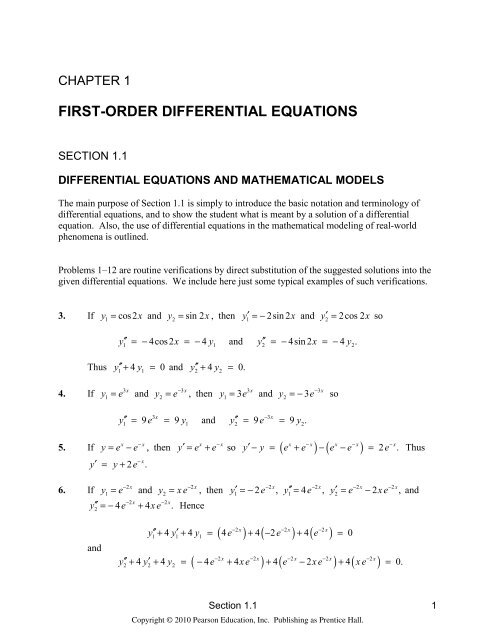



Solutions To Problems In Chapter One Mathematics
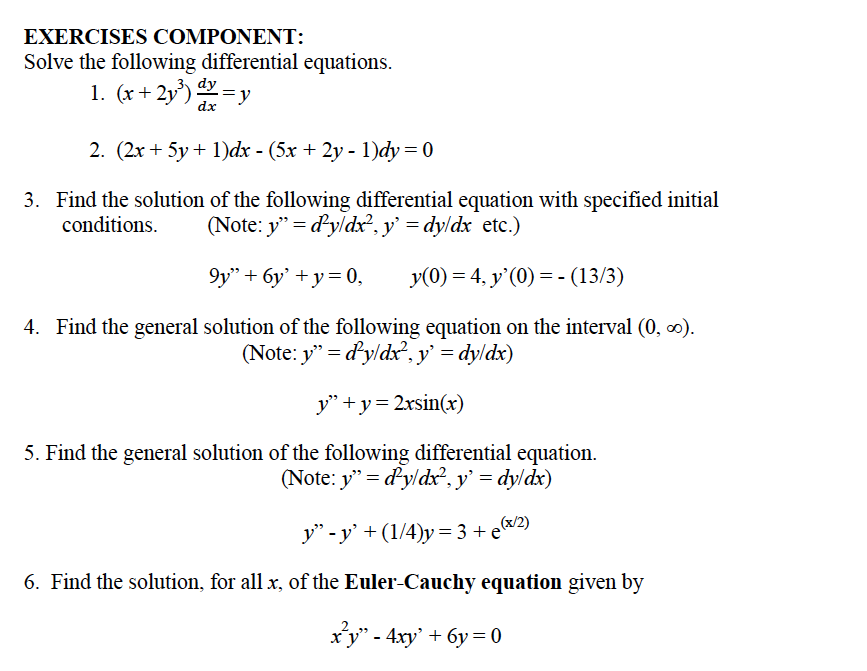



Answered Solve The Following Differential Bartleby
Piece of cake Unlock StepbyStep From x dy dx y = x2y2, one can divide both sides by x so that it fits the Bernoulli form dy dx y x = xy2 Divide both sides by y2 y−2 dy dx 1 xy = x Then, define a function v = y1−2 = y−1 Differentiate both sides with respect to x to get dv dx = − dy dx y−2, or dy dx = − y2 dv dxCompute answers using Wolfram's breakthrough technology & knowledgebase, relied on by millions of students & professionals For math, science, nutrition, history




Engineering Mathematics Notes




What Is The Solution To This Ode 3x 2 4xy Y 2 Dx 2x 2 2xy 9 Dy 0 Quora
Learn how to solve differential equations problems step by step online Solve the differential equation xy*dx(1x^2)dy=0 Grouping the terms of the differential equation Group the terms of the differential equation Move the terms of the y variable to the left side, and the terms of the x variable to the right side Simplify the expression \frac{1}{y}dy Integrate both sides of theHelp is appreciated EditSolve 1/(x y(x) 1)^2 ( dy(x))/( dx) (x^2/(x y(x) 1)^2 y(x)^2) = 0 Let P(x, y) = 1/(x y 1)^2 and Q(x, y) = y^2 x^2/(x y 1)^2 This is an exact



How Do I Solve The Following Differential Equation Math X 1 X 2 Dy Over Dx 2x 2 1 Y X 3 Math Quora



How To Solve Dy Dx 4x Y 7 2x Y 1 Quora
# dy/dx = (x^2y^2xy)/x^2 # with #y(1)=0# Which is a First Order Nonlinear Ordinary Differential Equation Let us attempt a substitution of the form # y = vx # Differentiating wrt #x# and applying the product rule, we get # dy/dx = v x(dv)/dx # Substituting into the initial ODE we get # v x(dv)/dx = (x^2(vx)^2x(vx))/x^2 #Simple and best practice solution for (x2)dx4(xy1)dy=0 equation Check how easy it is, and learn it for the future Our solution is simple, and easy to understand, so don`t hesitate to use it as a solution of your homework If it's not what You are looking for type in the equation solver your own equation and let us solve it Welcome to Sarthaks eConnect A unique platform where students can interact with teachers/experts/students to get solutions to their queries Students (upto class 102) preparing for All Government Exams, CBSE Board Exam, ICSE Board Exam, State Board Exam, JEE (MainsAdvance) and NEET can ask questions from any subject and get quick answers by




Example 11 Find Particular Solution Dy Dx 4xy2 Examples




Worked Example Identifying Separable Equations Video Khan Academy
Find the particular solution of the differential equation dy/dx = 4xy^2 given that y = 1, when x = 0 asked May 12 in Differential Equations by Yajna (299k points) differential equations;Steps Using the Quadratic Formula = { x }^ { 2 } { y }^ { 2 } 2xy1=0 = x 2 y 2 − 2 x y − 1 = 0 All equations of the form ax^ {2}bxc=0 can be solved using the quadratic formula \frac {b±\sqrt {b^ {2}4ac}} {2a} The quadratic formula gives two solutions, one when ± is addition and one when it is subtractionSimple and best practice solution for 2xy(4y^2)dx(y1)(x^22)dy=0 equation Check how easy it is, and learn it for the future Our solution is simple, and easy to understand, so don`t hesitate to use it as a solution of your homework If it's not what You are looking for type in the equation solver your own equation and let us solve it




Engineering Mathematics Notes



The Solution Of 1 X 2 Dy Dx 2xy 4x 2 0 Is Sarthaks Econnect Largest Online Education Community
This is a linear first order differential equation It has a simple procedure to solve for mathy(x)/math math(x^2 1) \frac{dy}{dx} 4xy = x/math Put it in standard form so that the coefficient of math\frac{dy}{dx}/math is one DiviSimple and best practice solution for (2xy)dy(x^2y^21)dx=0 equation Check how easy it is, and learn it for the future Our solution is simple, and easy to understand, so don`t hesitate to use it as a solution of your homework If it's not what You are looking for type in the equation solver your own equation and let us solve itTo ask Unlimited Maths doubts download Doubtnut from https//googl/9WZjCW `x(1y^2)dxy(1x^2) dy=0`



Www3 Nd Edu Taylor Math550 Images Oldexams Exam2a Pdf
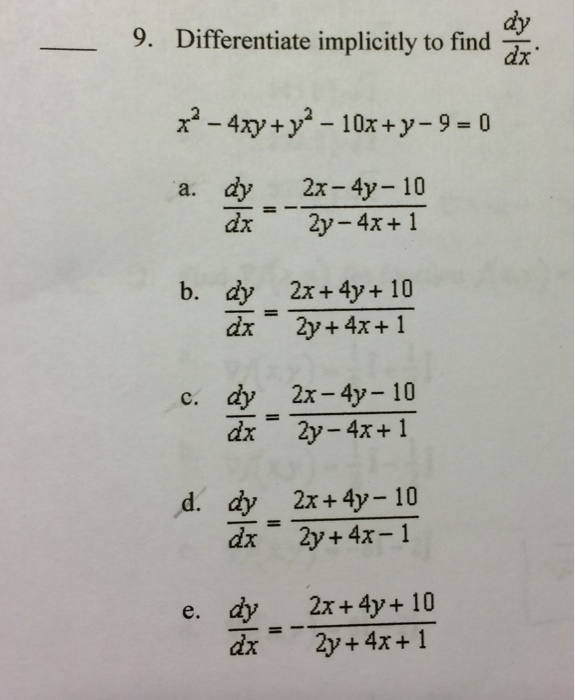



Differentiate Implicitly To Find Dy Dx X 2 4xy Y 2 Chegg Com
Find dy/dx x^24xyy^2=4 Differentiate both sides of the equation Differentiate the left side of the equation Tap for more steps Differentiate Tap for more steps By the Sum Rule, the derivative of with respect to is Differentiate using the Power Rule which states that is whereDifferentiate implicitly to find dy/dx x^24xy y^2 10x y ?To ask Unlimited Maths doubts download Doubtnut from https//googl/9WZjCW `(1x^2)dy/dx2xy=(x^22)(x^21)`



Secure Media Collegeboard Org Digitalservices Pdf Ap Ap16 Calculus Ab Q4 Pdf
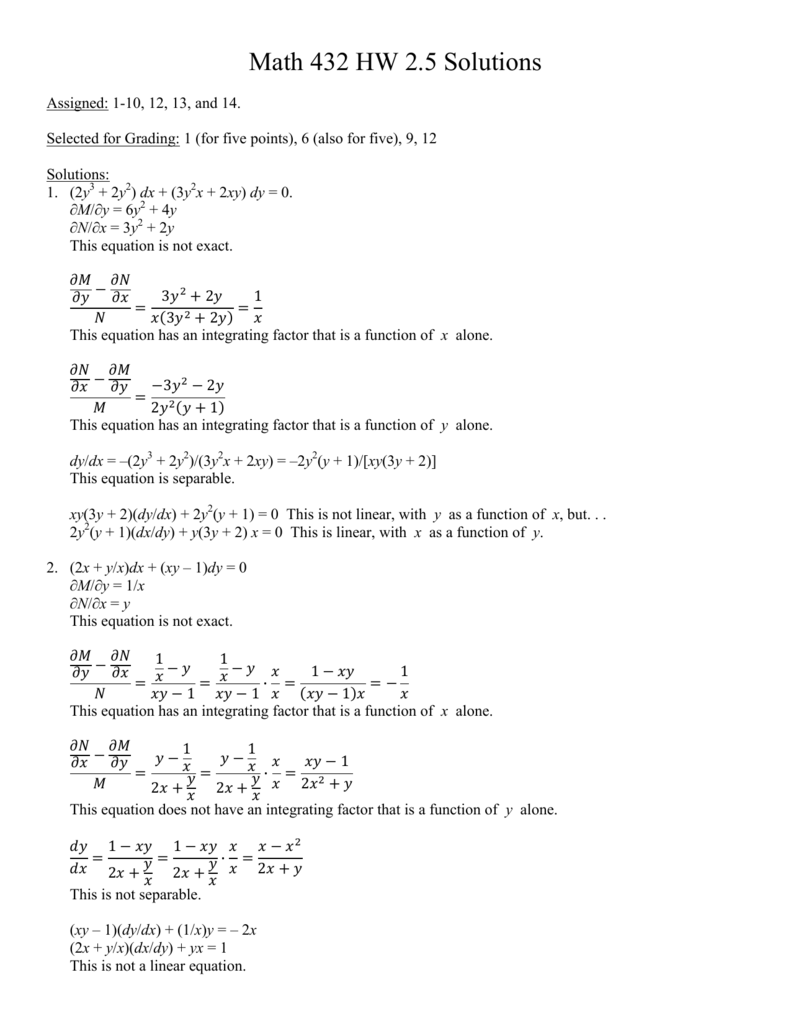



Math 432 Hw 2 5 Solutions
Transcribed image text Solve the initial value problem dy 5) 2 4xy = 8x;Free Multivariable Calculus calculator calculate multivariable limits, integrals, gradients and much more stepbystepWelcome to Sarthaks eConnect A unique platform where students can interact with teachers/experts/students to get solutions



Http Www Math Sci Hokudai Ac Jp S Settepanella Teachingfile Calculus Calculus2 Pagine Lineintex Pdf
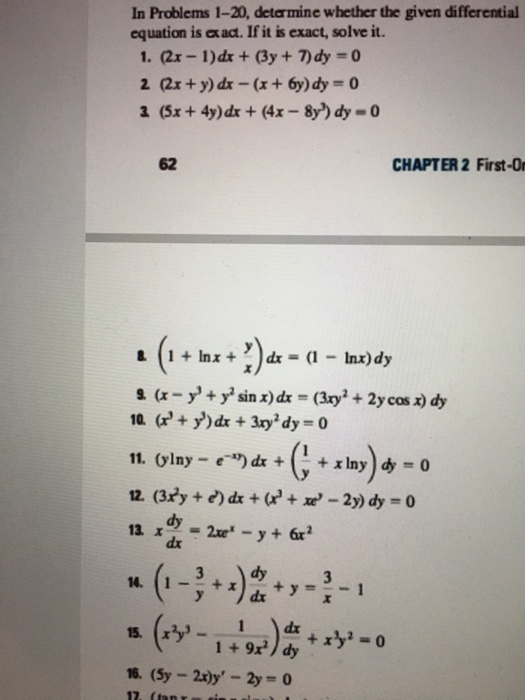



In Determine Whether The Given Differential Equation Chegg Com
X^2 2 y^2 = 1 WolframAlpha Volume of a cylinder? How to find dy/dx by implicit differentiation given that x^2 4xy y^2 = 4Here's the 4 simple steps we will take in order to find dy/dx from the given equSolve your math problems using our free math solver with stepbystep solutions Our math solver supports basic math, prealgebra, algebra, trigonometry, calculus and more




For The Differential Equation X 2 Y 2 Dx 2xy Dy 0 Which Of The Following Are True Youtube



Find Dy Dx When X And Y Are Connected By The Relation X2 Y2 2 Xy Studyrankersonline
Popular Problems Calculus Find dy/dx 2xyy^2=1 2xy − y2 = 1 2 x y y 2 = 1 Differentiate both sides of the equation d dx (2xy−y2) = d dx (1) d d x ( 2 x y y 2) = d d x ( 1) Differentiate the left side of the equation Tap for more steps By the Sum Rule, the derivative of 2 x y − y 2 2 x y y 2 with respect to x x is d d x 2Show that the solution of differential equation y = 2(x^2 1) ce^(x^2) is dy/dx 2xy 4x^3 = 0 asked in Mathematics by Samantha ( 3k points) differential equationsLearn how to solve differential equations problems step by step online Solve the differential equation (1x^4)dyx(14y^2)*dx=0 Grouping the terms of the differential equation Group the terms of the differential equation Move the terms of the y variable to the left side, and the terms of the x variable to the right side Simplify the expression \frac{x}{1x^4}dx
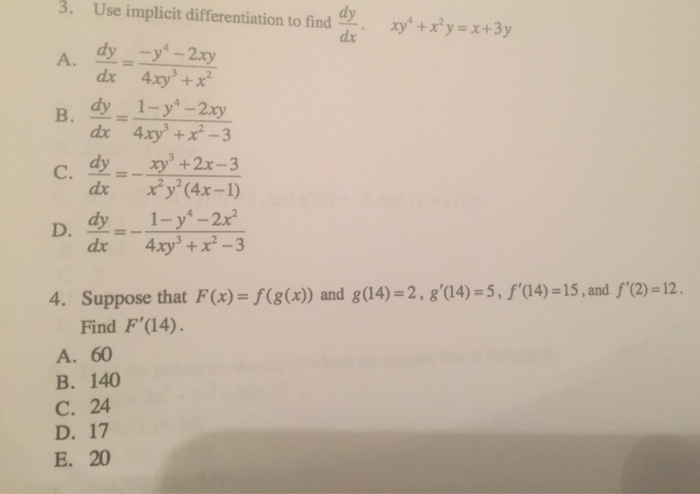



Use Implicit Differentiation To Find Dy Dx Xy 4 Chegg Com




Solve Xy 3 Y Dx 2 X 2y 2 X Y 4 Dy 0 Youtube
Question Solve the initial value problems x^2 dy/dx = 4x^2 x 2/ (x 1) (y 1), y (1) = 1 x^2 dy/dx 3xy = x^4 ln (x) 1, y (1) = 0 Solve the Equation dy/dx y/x 2 = 5 (x 2)y^1/2 Determine whether the equation is exact if it is then solve it 2/Squareroot 1 x^2 y cos (xy) dx x cos (xy) y^1/3 dy = 0 Solve the EquationSimple and best practice solution for (1x^2y^2x^2y^2)dy=y^2dx equation Check how easy it is, and learn it for the future Our solution is simple, and easy to understand, so don`t hesitate to use it as a solution of your homework If it's not what You are looking for type in the equation solver your own equation and let us solve it
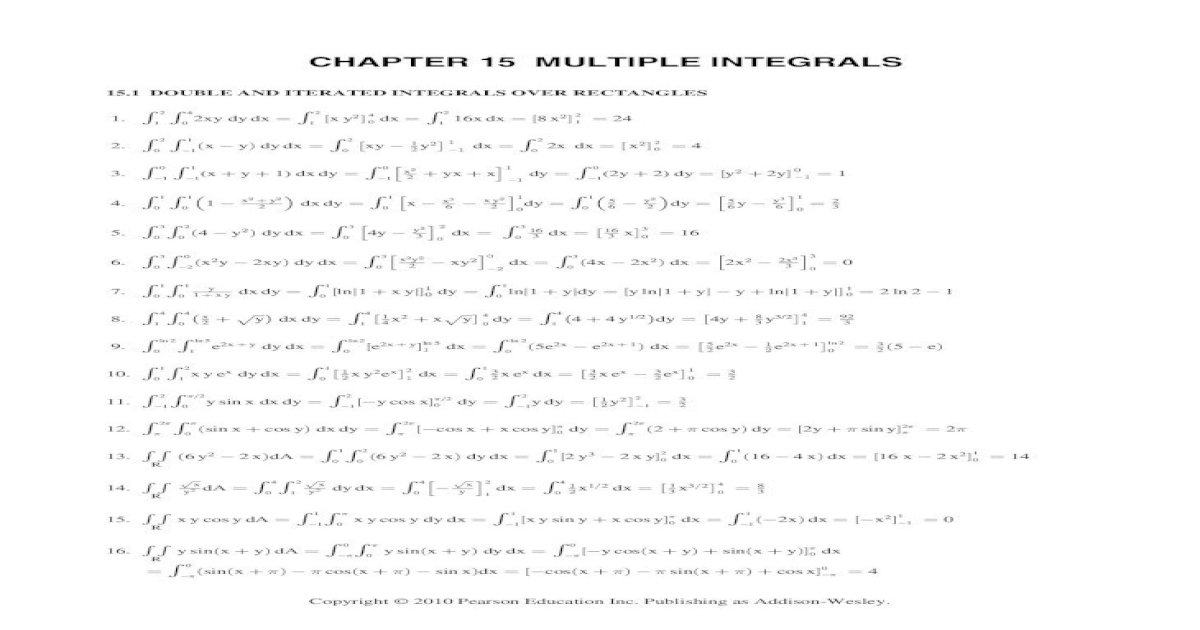



Thomas Calculus 12th Ed Solution Ch15




Dy Dx X 2 Y 2 Novocom Top




Calculus Early Transcendentals 11th Edition Anton Solutions Manual By Jelanicampbell Issuu



How To Solve This Differential Equation X 2 1 Dy Dx 4xy X Quora




Solving The Bernoulli Differential Equation X 2 Dy Dx Y 2 Xy Youtube




X 4y 2 Solve For Y Novocom Top



Http Www Math Sci Hokudai Ac Jp S Settepanella Teachingfile Calculus Calculus2 Pagine Lineintex Pdf




Evaluate The Line Integral Oint Y 2 Dx 4xy Dy Along The Closed Path Defined By Y X 2 And Y 2x Starting From 0 0 Going Counter Clockwise Study Com




Solve The Linear Differential Equation X 2 1 Dy Dx Xy X Youtube



Www Math Tamu Edu Irinaholmes M308f M308f Hw3 Sol Pdf




Y2 4xy 2x2 10 X2 10x Y2 17 0 Frac X29 Frac Y24 1 X Gauthmath



What Is The General Solution To The Differential Equation Math 3x 2 2xy 3y 2 Mathrm D X 4xy Mathrm D Y Math Quora




Dy Dx 4xy X 1 1 X 1 Solve It Brainly In




First Order Differential Equations Chapter 2 Ch2 2 Contents 2 1 Solution Curves Without A Solution 2 1 Solution Curves Without A Solution 2 2 Separable Ppt Download




Ch 2 6 Exact Equations Integrating Factors Consider A First Order Ode Of The Form M X Y N X Y Y 0 Suppose There Is A
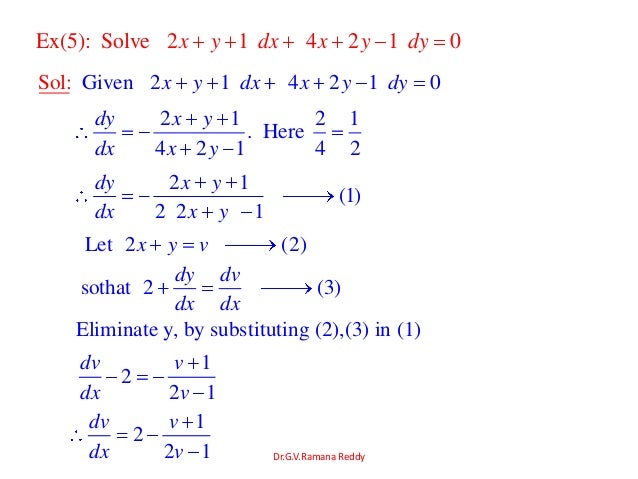



Differential Equations



Secure Media Collegeboard Org Digitalservices Pdf Ap Ap16 Calculus Ab Q4 Pdf



Secure Media Collegeboard Org Digitalservices Pdf Ap Apcentral Ap15 Calculus Ab Q6 Pdf




Engineering Mathematics Notes




Solve The Following X 2 4xy 2y 2 Dx Y 2 4xy 2x 2 Dy 0
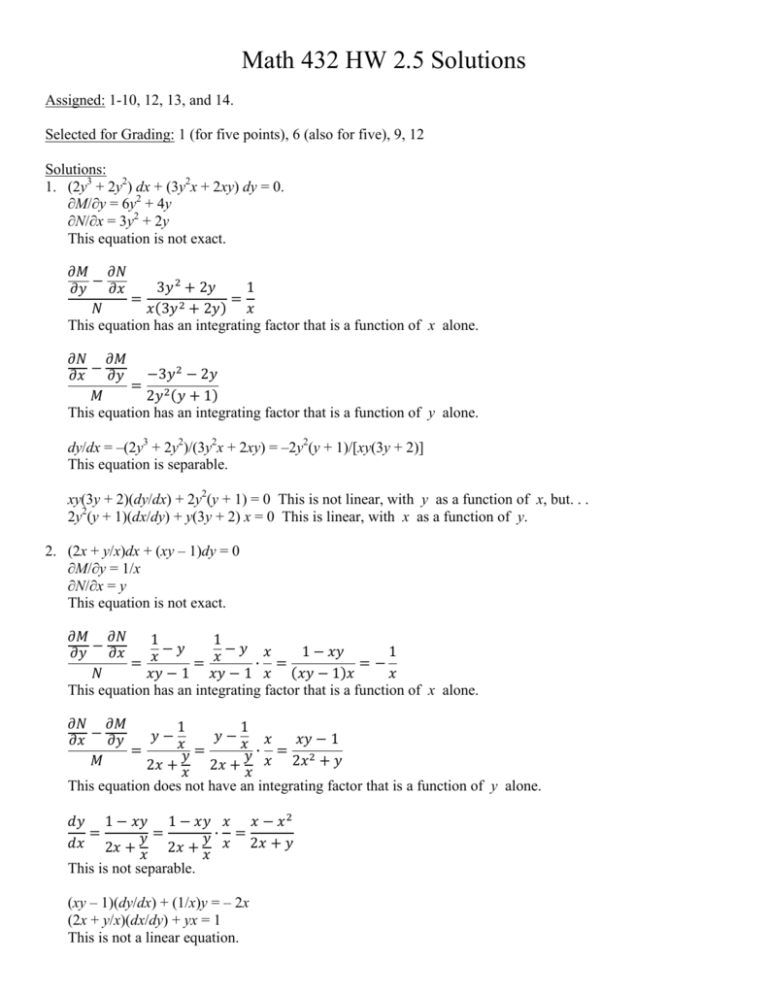



Math 432 Hw 2 5 Solutions




E Xy 4xy 4 Find Dy Dx Please Hurry Up Brainly In



Q Tbn And9gcqao1d6h0ib4uvo7te1cvyp Cylyydkkb0s7r1c3huvcoo7gf Usqp Cau




Solve The Differential Equation Dy Dx Square 4x Y 1 Youtube



Secure Media Collegeboard Org Digitalservices Pdf Ap Apcentral Ap15 Calculus Ab Q6 Pdf




Exercises Solve Each Of The Differential Equations In Chegg Com
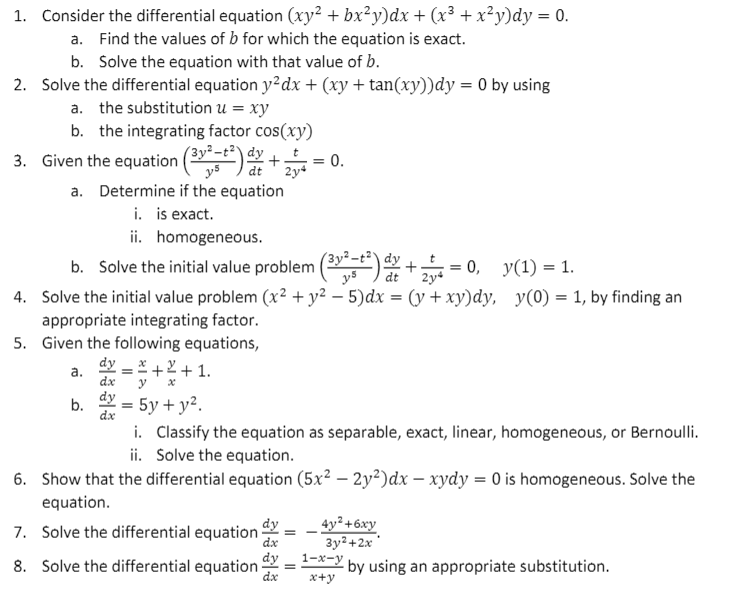



Consider The Differential Equation Xy 2 Bx 2y Dx Chegg Com



The Solution Of The Differential Equation Dy Dx 4x Y 1 2 Sarthaks Econnect Largest Online Education Community



2




For Solving Dy Dx 4x Y 1 Suitable Substitution Is Youtube




Engineering Mathematics Notes




For Problems 1 15 Solve The Given Differential Chegg Com
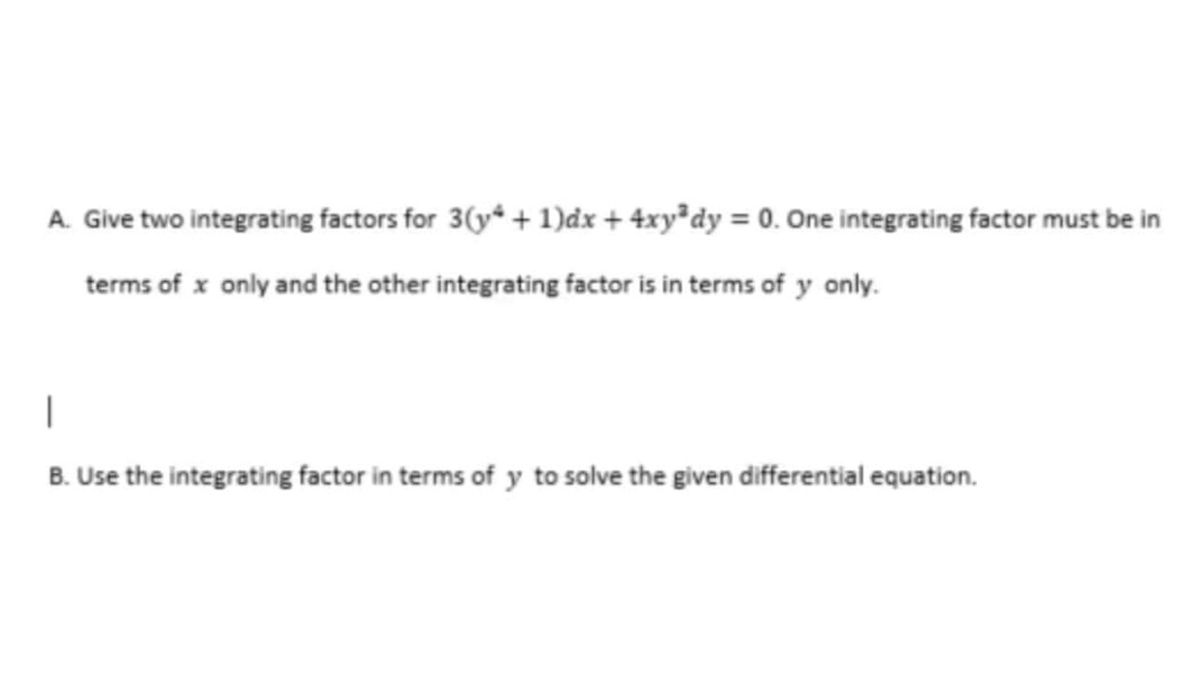



Answered A Give Two Integrating Factors For Bartleby
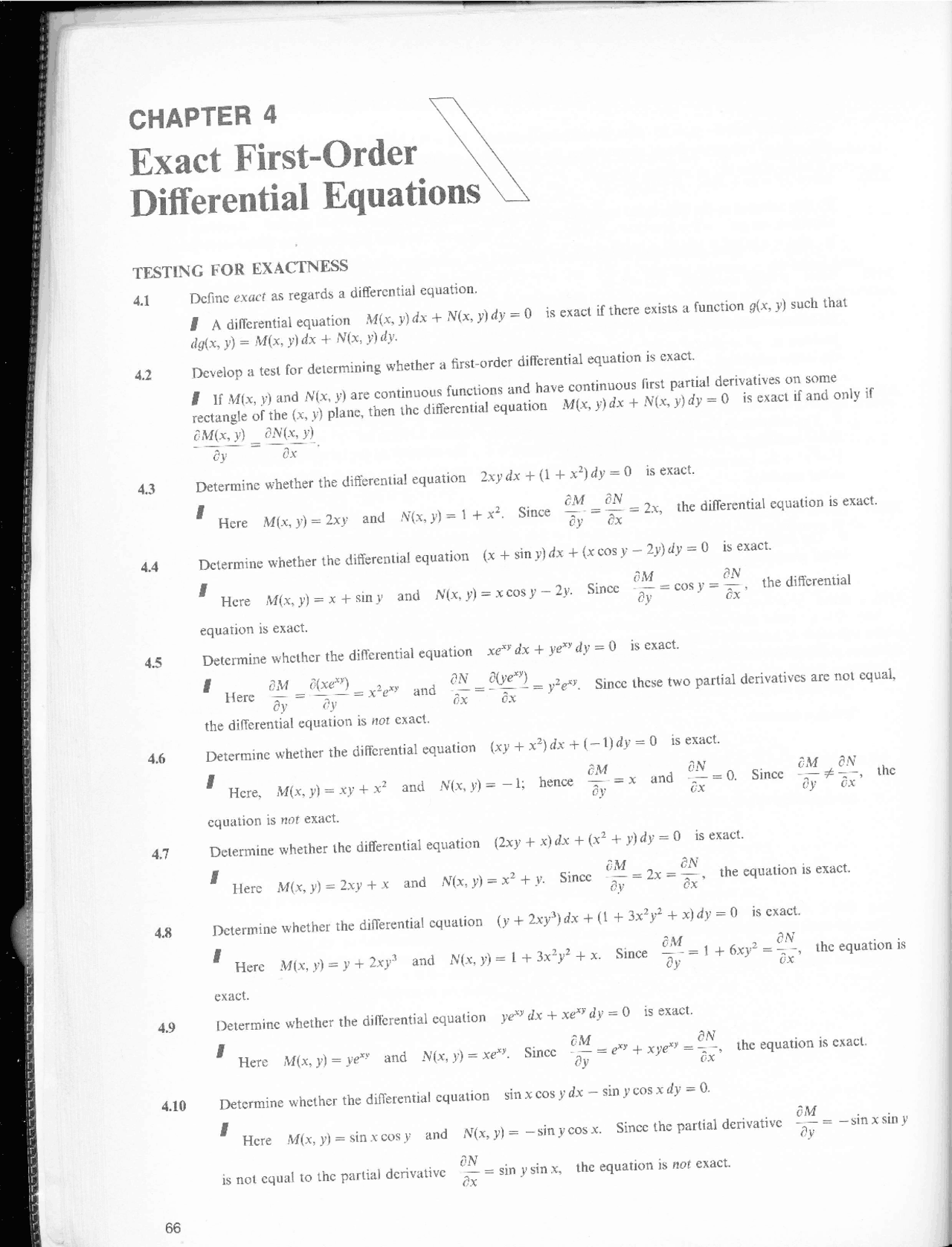



Chapter 04 2500 Solved Problems In Differential Equations Docsity




Misc 7 Show That General Solution Is X Y 1 A 1 X Y 2xy




Dy Dx 4xy 2 Solve The Differential Equation Brainly In



Solved Find The General Solutions Of The Following Differential Equations Using All Possible Methods 2 2y 2 5xy 2y 4 Dx X 2 X 2 Y 1 Dy 0 2 Course Hero



Find Dy Dx Of X 2 Y 2 2 4xy Sarthaks Econnect Largest Online Education Community




What Are The Steps To Solve Dy Dx 4xy X 2 1 1 X 2 1 3 Quora



Solve The Differential Equation Dy Dx X 2y 3 2x Y 3 Sarthaks Econnect Largest Online Education Community
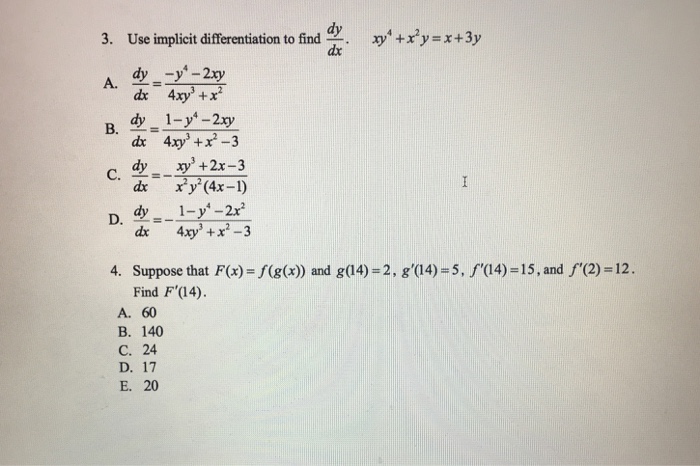



Use Implicit Differentiation To Find Dy Dx Xy 4 Chegg Com



Solved Find The General Solutions Of The Following Differential Equations Using All Possible Methods 2 2y 2 5xy 2y 4 Dx X 2 X 2 Y 1 Dy 0 2 Course Hero




Find The Particular Solution Of The Following Differential Equa
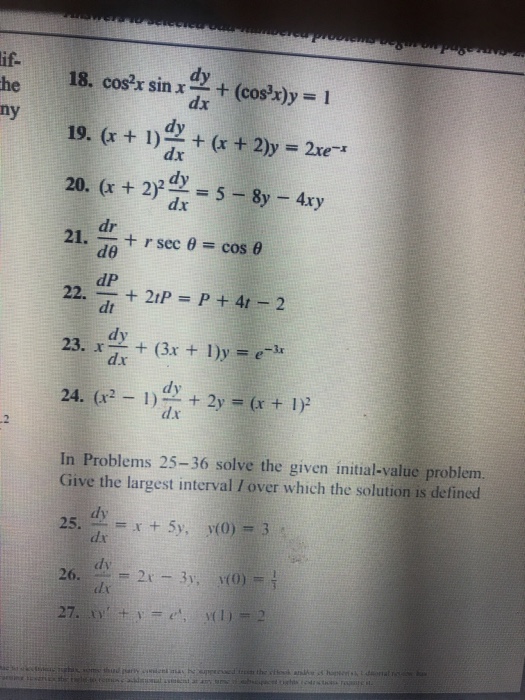



Cos 2 X Sin X Dy Dx Cos 3 X Y 1 X 1 Dy Dx Chegg Com
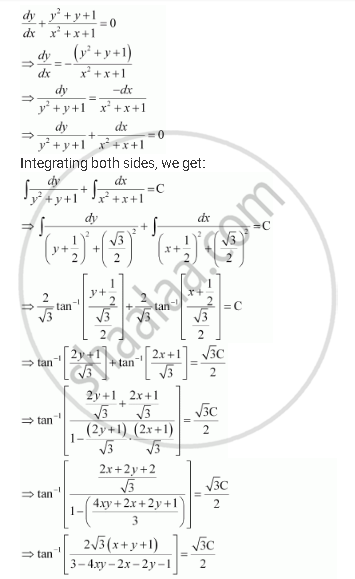



Show That The General Solution Of The Differential Equation Dy Dx Y 2 Y 1 X 2 X 1 0 Is Given By X Y 1 A 1 X Y 2xy Where A Is Parameter Mathematics Shaalaa Com



1




De Ordinary Differential Equation Equations



Www Tau Ac Il Levant Ode Solution 6 Pdf



Solved 3 Use Implicit Differentiation To Find Dy Dx And Evaluate Dy Dx At The Point 1 1 15 P 2xy2 Exy X3 Section 3 4 The Price Demand Equa Course Hero




Engineering Mathematics Notes




Differential Equatio Long Answer Questions 7 M R Solye 2x Y 3 Dx 2y X 1 Dy Sol Dy 2x Y 3 Given Equation Is



4 2 Implicit Differentiation




Solving Separable Differential Equations Calculus Socratic
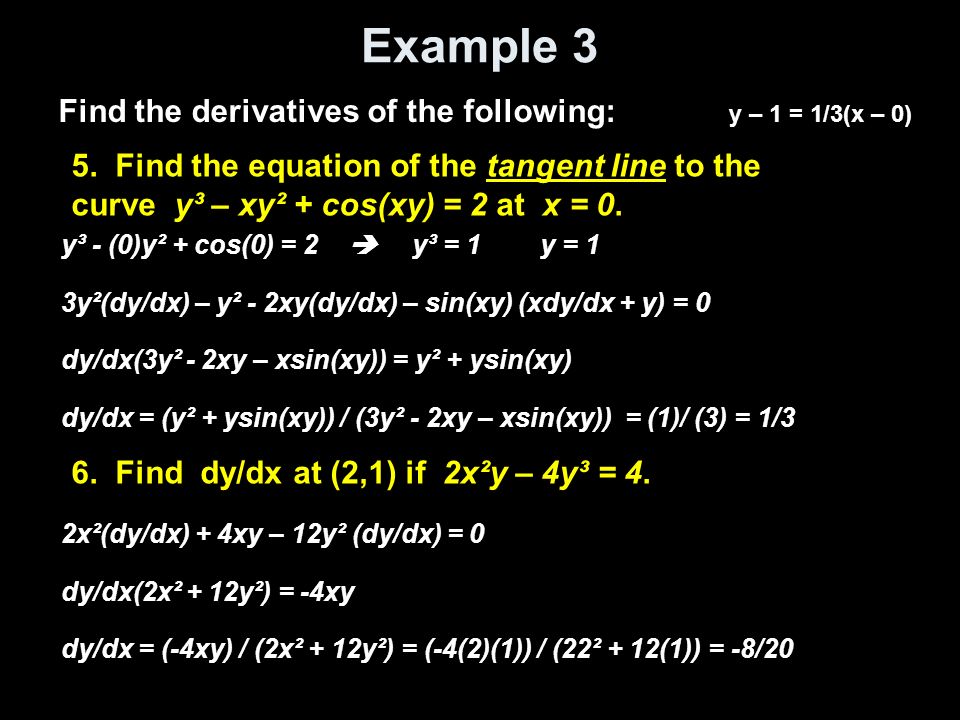



Implicit Differentiation Ppt Video Online Download




Find Dy Dx If X 2 Y 2 4xy




2 Solve The Following Differential Equations A Gauthmath




Exact Equations Example 3 Video Khan Academy




Differential Equation First Order Linear X 2 1 Dy Dx 2y X 1 2 Youtube



Find The Equation Of A Curve Passing Through Origin And Satisfying The Differential Equation 1 X 2dy Dx 2xy 4x2 Studyrankersonline
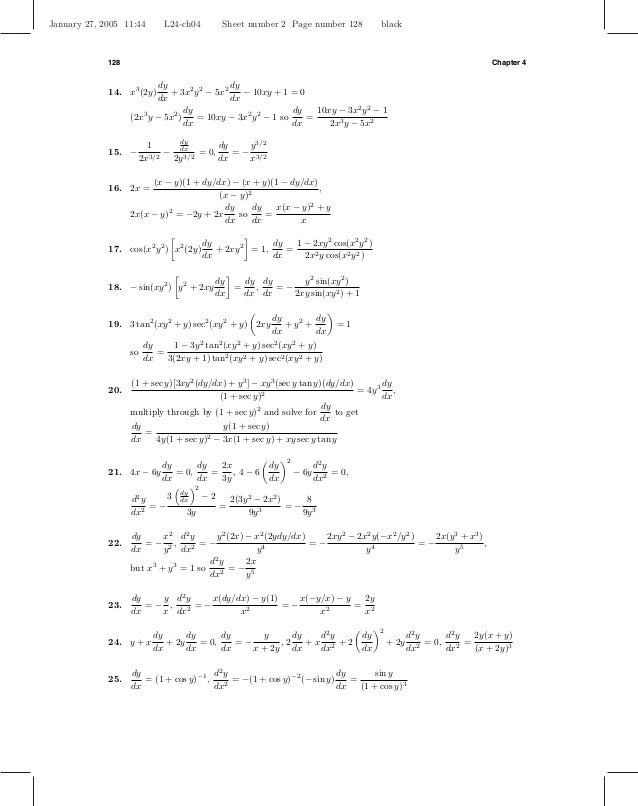



Chapter 04
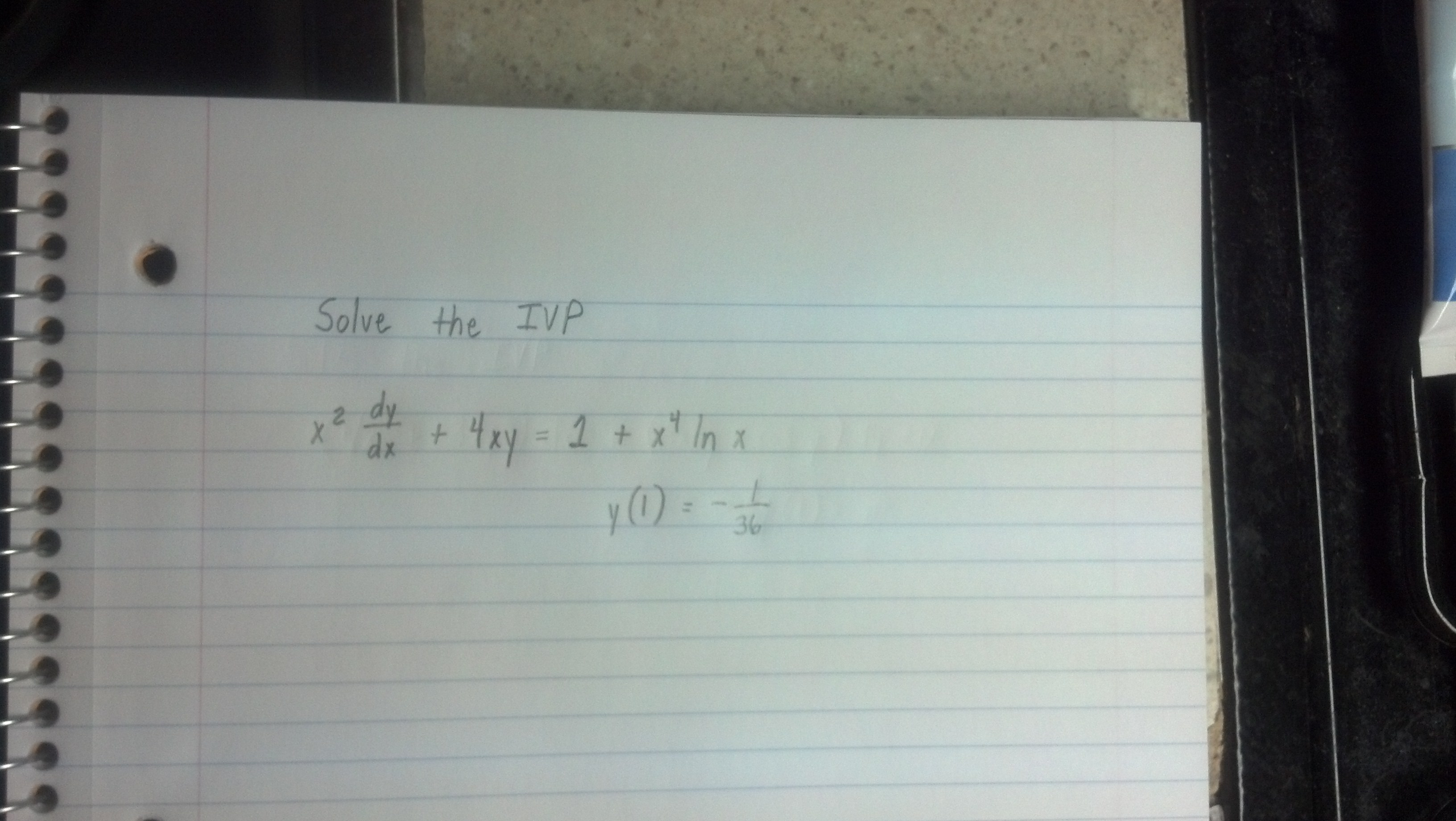



Solve The Ivp X 2 Dy Dx 4xy 1 X 4 1n X Y 1 1 36 Chegg Com




Dy Dx X 2 Y 2 Novocom Top



Q Tbn And9gcq69xqaiwgxy95 44f5sqsm2pnlgxvor Roue6xadfczqpkv4qx Usqp Cau



Http Howellkb Uah Edu Public Html Detext Part2 Separable Pdf




If X2 Y2 2 Xy Find Dy Dx Mention Each And Every Step Mathematics Topperlearning Com Gwvwfskk




Thomas Calculus 12th Ed Solution Ch15
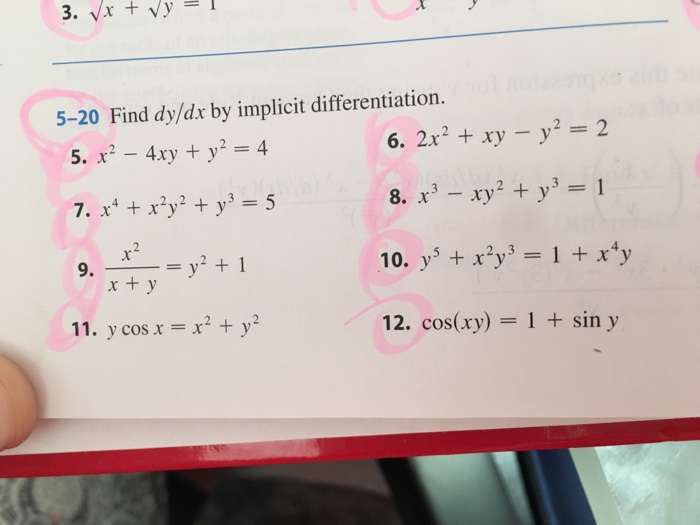



Find Dy Dx By Implicit Differentiation X 2 4xy Chegg Com
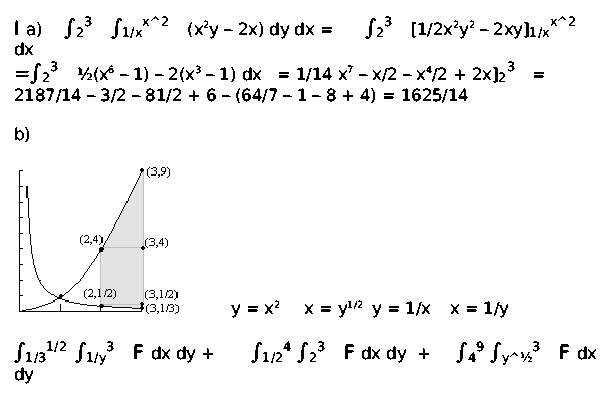



Answers To The Review Problems For The First Exam 251 05 10 In Spring 06




Example 11 Find Particular Solution Dy Dx 4xy2 Examples



How To Solve Dy Dx 4x Y 7 2x Y 1 Quora
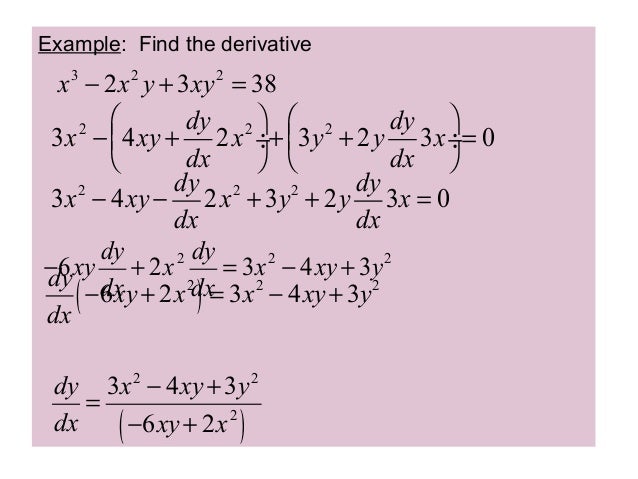



4 1 Implicit Differentiation



How To Solve This Differential Equation X 2 1 Dy Dx 4xy X Quora




Engineering Mathematics Notes



How To Solve The Differential Equation Xy Dx X 2 2y 2 Dy 0 Quora



How To Solve The Differential Equation X 4y 9 Dx 4x Y 2 Dy 0 Using Substitution Quora




How Many Arbitrary Constants Are There In The Particular Solution




How To Do Implicit Differentiation 7 Steps With Pictures




Solution Manual 2nd Edition 1 Introduction To Differential Equations Exercises 1 1 1 Second Order Linear 2 Third Order Nonlinear Because Of Dy Dx 4 3 Course Hero




Dy Dx 4x Y 1 2 Youtube



Gfgc Kar Nic In Mangalore Genericdochandler 197 db 07ac 4f65 B5c9 2fcf8d7a5f Pdf



0 件のコメント:
コメントを投稿